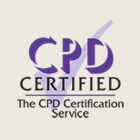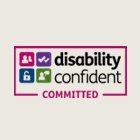Organisations are now transitioning over to the Patient Safety Incident Response Framework (PSIRF). All patient safety incident investigations will have to be undertaken by investigators who have been on a two-day course. This training meets the PSIRF requirements.
This two-day course is delivered virtually via MS Teams or Zoom. It can be delivered face-to-face on request.
The training is practical and case study led, with day one being a non-clinical case study and day two a clinical case study designed to fit the needs of an organisation.
We use breakout rooms for most of the exercises to create a protected learning environment.
Delegates will learn:
- The purpose and overriding principles of the Patient Safety Incident Response Framework (PSIRF)
- The different types of learning response prescribed by PSIRF
- How to undertake a Patient Safety Incident Investigation (PSII)
- About complex systems, systems thinking and human factors
- How just culture fits into the patient safety arena
- The application of the duty of candour
- How to support and engage with staff, patients, families and carers throughout a learning response
- How to conduct interviews
- How to conduct observations in order to understand work as done
- The additional evidence required
- Methods of analysis; how to use the SEIPS model and the Contributory Factors Framework
- The SEIPS work system template
- How to map and organise evidence
- How to produce meaningful and actionable safety actions and safety recommendations
- How to create effective measurement plans
- Robust and accessible report writing techniques
- The importance of monitoring the effectiveness of safety actions and recommendations
Course Timetable
Day One
| 09.00am to 09.30am | Logon, technical knowhow and introductions |
| 09.30am to 10.00am | Overview of PSIRF. Different types of learning response. What is a PSII? |
| 10.00am to 10.30am | A practical introduction to complex systems, systems thinking and human factors |
| 10.30am to 10.45am | Coffee Break |
| 10.45am to 11.15am | The importance of neutralising and human factors |
| 11.30am to 12.15pm | Gathering evidence (including working with patients and their families) |
| 12.15pm to 1.15pm | Lunch |
| 1.15pm to 2.15pm | Mapping: simple and tabular timelines |
| 2.15pm to 2.30pm | Tea Break |
| 2.30pm to 3.30pm | Analysis (including SEIPS) and drafting safety actions |
| 3.30pm to 3.45pm | Report writing and the PSIRF PSII template |
| 3.45pm to 4.00pm | Recap and questions |
Day Two
| 09.00am to 09.15am | Recap, housekeeping, timings and overview of the day. |
| 09.15am to 10.30am | Gathering evidence from staff |
| 10.30am to 10.45am | Coffee Break |
| 10.45am to 11.15am | Interviews and planning questions |
| 11.15am to 11.30am | Introduction to clinical case study |
| 12.30pm to 1.30pm | Lunch |
| 1.30pm to 2.15pm | Case study continues |
| 2.15pm to 2.30pm | Tea Break |
| 2.30pm to 3.45pm | Case study continues |
| 3.45pm to 4.00pm | Recap, questions, summary and feedback |







